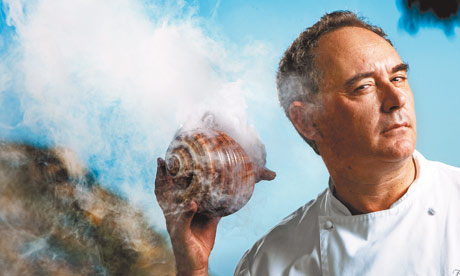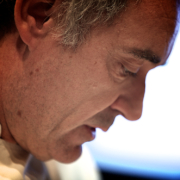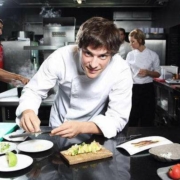Are Italians Envious of Spanish Molecular Gastronomy?

Just to keep you up to date with what’s going on in European cuisine trends, we came across this somewhat tongue in cheek article in the UK Guardian newspaper, which you may find of interest. We cannot imagine our great Michelin Starred chefs in Spain, nor for that matter, their numerous and dedicated guests, even contemplating acceptance of such a situation! http://gu.com/p/2fcfv
With thanks to Trevor Hayward of the UK Guardian, who recently posted this article:
“Does the move by the Italian government to outlaw some of the chemicals and processes of molecular gastronomy mark the end of an era?
Last week the Italian government moved to ban some of the chemicals and techniques used in molecular gastronomy from Italian kitchens. To be fair, they have form in this area. In 2002, with what appeared to be complete seriousness they also suggested a licensing scheme for any restaurant selling ‘pizza’ anywhere in the world, and their posture in defence of regional specialities like Chianti and Parmagiano is usually one of naked aggression. In a nation where a huge number of voters are involved in agriculture and all are cheerfully obsessed by their regional cuisines, high-profile legislation against foreign culinary influence will be a sure vote winner, so such moves probably shouldn’t surprise us.
What is slightly more surprising is how little attention this announcement has attracted around the world. It’s gift of a story after all – barking government minsters v nutty professors. You could write your own headline. But instead, a cynical soul might conclude, while molecular gastronomy used to be a hot-button issue for global nosh-botherers, suddenly nobody gives a tu’ppeny toss.
Both Blumenthal and Adrià have spent the last few years distancing themselves from the idea that made their names. Both highly talented chefs originally achieved widespread public notice through the very newsworthy combination of culinary genius and mad professor schtick. Both have proved themselves to be so much more than the easy photographer’s cliches of stary eyes and foaming test tubes and now, both have pretty much stopped talking about it and changed the subject. Adrià is closing his restaurant to reopen it as a “gastronomy think-tank” and has just been announced as a Spanish Tourism Ambassador. By fixing the menu, Blumenthal has cemented the position of the Fat Duck as a lucrative culinary thrill ride while he, thankfully, shifts his attentions to new and entirely different restaurants in central London.
Perhaps the final nail in MG’s coffin is the depressing, quiet ubiquity of some of its early techniques. Adrià hasn’t wielded a foam gun in anger since the late 90s yet now they crop up in every gastropub with pretensions to quality. The sous vide water bath is a more common fixture in most urban restaurants than a cheerful waitress.
Before we finally lay it to rest though, it’s worth remembering the benefits that molecular gastronomy brought us. The parlour tricks were fun but its real legacy is that cooks of all levels now think in more scientific terms about what they do in the kitchen. Professor Pete Barham, who has worked extensively with Blumenthal, argues in a recent paper that MG should be taken as a more scientific discipline. “To me, he says, a kitchen is just like a science laboratory and cooking is just another experimental science”. Hmm. I guess if I was Italian, that ‘just’ would make me pretty mad too.
So is molecular gastronomy all over? Should it become a module in GCSE science lessons? Can we get back to our tea now?”
If you would like to understand more about Spanish Molecular Gastronomy- our Modern Culinary Tour in Barcelona is the perfect way to experience the modern and contemporary interpretations of classic Spanish cuisine.




